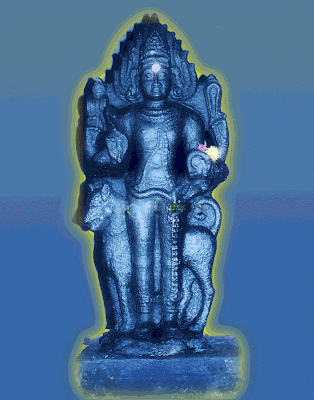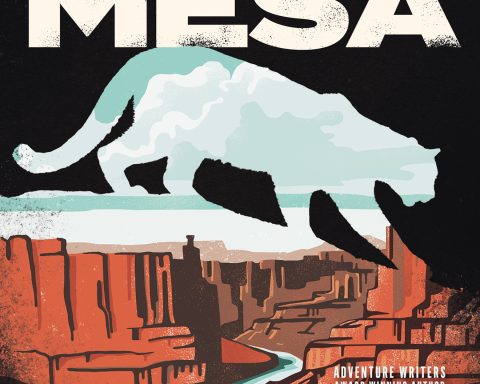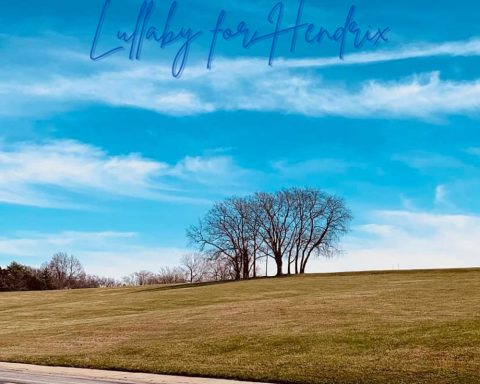देवराजसेव्यमानपावनांघ्रिपङ्कजं
व्यालयज्ञसूत्रमिन्दुशेखरं कृपाकरम् ।
नारदादियोगिवृन्दवन्दितं दिगंबरं
काशिकापुराधिनाथकालभैरवं भजे ॥१॥
Deva-Raaja-Sevyamaana-Paavana-Angghri-Pankajam
Vyaala-Yajnya-Suutram-Indu-Shekharam Krpaakaram |
Naarada-[A]adi-Yogi-Vrnda-Vanditam Digambaram
Kaashikaa-Pura-Adhinaatha-Kaalabhairavam Bhaje ||1||
भानुकोटिभास्वरं भवाब्धितारकं परं
नीलकण्ठमीप्सितार्थदायकं त्रिलोचनम् ।
कालकालमंबुजाक्षमक्षशूलमक्षरं
काशिकापुराधिनाथकालभैरवं भजे ॥२॥
Bhaanu-Kotti-Bhaasvaram Bhavaabdhi-Taarakam Param
Niila-Kannttham-Iipsita-Artha-Daayakam Trilocanam |
Kaala-Kaalam-Ambuja-Akssam-Akssa-Shuulam-Akssaram
Kaashikaa-Pura-Adhinaatha-Kaalabhairavam Bhaje ||2||
शूलटङ्कपाशदण्डपाणिमादिकारणं
श्यामकायमादिदेवमक्षरं निरामयम् ।
भीमविक्रमं प्रभुं विचित्रताण्डवप्रियं
काशिकापुराधिनाथकालभैरवं भजे ॥३॥
Shuula-Tanka-Paasha-Danndda-Paannim-Aadi-Kaarannam
Shyaama-Kaayam-Aadi-Devam-Akssaram Nir-Aamayam |
Bhiimavikramam Prabhum Vichitra-Taannddava-Priyam
Kaashikaa-Pura-Adhinaatha-Kaalabhairavam Bhaje ||3||
भुक्तिमुक्तिदायकं प्रशस्तचारुविग्रहं
भक्तवत्सलं स्थितं समस्तलोकविग्रहम् ।
विनिक्वणन्मनोज्ञहेमकिङ्किणीलसत्कटिं
काशिकापुराधिनाथकालभैरवं भजे ॥४॥
Bhukti-Mukti-Daayakam Prashasta-Caaru-Vigraham
Bhakta-Vatsalam Sthitam Samasta-Loka-Vigraham |
Vi-Nikvannan-Manojnya-Hema-Kinkinnii-Lasat-Kattim
Kaashikaa-Pura-Adhinaatha-Kaalabhairavam Bhaje ||4||
धर्मसेतुपालकं त्वधर्ममार्गनाशकं
कर्मपाशमोचकं सुशर्मदायकं विभुम् ।
स्वर्णवर्णशेषपाशशोभिताङ्गमण्डलं
काशिकापुराधिनाथकालभैरवं भजे ॥५॥
Dharma-Setu-Paalakam Tva-Adharma-Maarga-Naashakam Karma-Paasha-Mocakam Su-Sharma-Daayakam Vibhum |
Svarnna-Varnna-Shessa-Paasha-Shobhitaangga-Mannddalam
Kaashikaa-Pura-Adhinaatha-Kaalabhairavam Bhaje ||5||
रत्नपादुकाप्रभाभिरामपादयुग्मकं
नित्यमद्वितीयमिष्टदैवतं निरंजनम् ।
मृत्युदर्पनाशनं करालदंष्ट्रमोक्षणं
काशिकापुराधिनाथकालभैरवं भजे ॥६॥
Ratna-Paadukaa-Prabhaabhi-Raama-Paada-Yugmakam
Nityam-Advitiiyam-Isstta-Daivatam Niramjanam |
Mrtyu-Darpa-Naashanam Karaala-Damssttra-Mokssannam
Kaashikaa-Pura-Adhinaatha-Kaalabhairavam Bhaje ||6||
अट्टहासभिन्नपद्मजाण्डकोशसंततिं
दृष्टिपातनष्टपापजालमुग्रशासनम् ।
अष्टसिद्धिदायकं कपालमालिकाधरं
काशिकापुराधिनाथकालभैरवं भजे ॥७॥
Atttta-Haasa-Bhinna-Padmaja-Anndda-Kosha-Samtatim
Drsstti-Paata-Nasstta-Paapa-Jaalam-Ugra-Shaasanam |
Asstta-Siddhi-Daayakam Kapaala-Maalikaa-Dharam
Kaashikaa-Pura-Adhinaatha-Kaalabhairavam Bhaje ||7||
भूतसंघनायकं विशालकीर्तिदायकं
काशिवासलोकपुण्यपापशोधकं विभुम् ।
नीतिमार्गकोविदं पुरातनं जगत्पतिं
काशिकापुराधिनाथकालभैरवं भजे ॥८॥
Bhuuta-Samgha-Naayakam Vishaala-Kiirti-Daayakam
Kaashi-Vaasa-Loka-Punnya-Paapa-Shodhakam Vibhum |
Niiti-Maarga-Kovidam Puraatanam Jagatpatim
Kaashikaapuraadhinaathakaalabhairavam Bhaje ||8||
कालभैरवाष्टकं पठंति ये मनोहरं
ज्ञानमुक्तिसाधनं विचित्रपुण्यवर्धनम् ।
शोकमोहदैन्यलोभकोपतापनाशनं
प्रयान्ति कालभैरवांघ्रिसन्निधिं नरा ध्रुवम् ॥९॥
Kaalabhairavaassttakam Patthamti Ye Manoharam
Jnyaana-Mukti-Saadhanam Vicitra-Punnya-Vardhanam |
Shoka-Moha-Dainya-Lobha-Kopa-Taapa-Naashanam
Prayaanti Kaalabhairava-Amghri-Sannidhim Naraa Dhruvam ||9||
Translation:
The first stanza is a salutations to Sri Kala Bhairava the supreme lord of Kasi. His Lotus feet are served by Indra, The king of the devas and the great one who wears snake as his sacrificial thread (a cord worn by the Dvija’s hanging from their left shoulder and goes below the right shoulder) and a moon on his head. He is extremely compassionate and is praised by Sage Narada and other Yogis, who also is a Digambara (remains naked).
The second stanza is a salutations to Sri Kala Bharaiva who is the supreme Lord of the city of Kasi, who has the brilliance of a million suns, who rescues us from the ocean of worldly existence and who is Supreme, Who has a blue throat, who bestows us with worldly prosperities, which we wish for, and who has three eyes, who is death unto death itself, whose eyes are like a pair of lotus flowers, whose spear supports the three worlds like an axle ( axis) around which they rotate, and who is imperishable.
The third stanza is a salutations to Lord Kala Bhairava the Lord of Kasi, who holds a spear, a noose, a club and punishment in his four hands, whose body is dark, who is the primordial Lord, who is imperishable, who is beyond the diseases of the world, who is the lord with terrific powers and who loves the strange vigorous Tandava Dance. ( the dance made by Lord Siva when he is terribly angry and preparing for destruction of the cities or worlds).
The fourth stanza is Salutations to Kala Bhairava who is the Lord of Kasi, who is the giver of worldly prosperities as well as liberation and who has an auspicious and pleasing form, who is kind and loving to his devotees, who stands firm as the deity of all the lokas (worlds), who wears a belt containing shining golden bells around his waist- that jingle when he walks or dances creating a variety of pleasing sounds.
The fifth stanza is a salutations to Lord Kala Bhairava who is the supreme lord of Kasi, who guards the established institution of the eternal dharma by leading the devotees towards the same, who is the lord that frees us from the fetters of Karma (the results of sins committed by us in our previous births), thereby giving us (great joy of possessing a sinless, free soul), who is embellished with golden coloured serpents entwining his body.
The sixth stanza is a salutations to Kala Bhairava whose charming beautiful pair of feet are decked with sandals are decked with studded gems, who is the eternal, non dual Ishta devata (the God whom we cherish), who destroys the pride of death (manifested as fear within us), and whose large terrible serpentine fangs liberate us.
The seventh stanza is Salutations to Kala Bhairava Whose loud and terrific laughter shatters the offspring produced by the ovaries of the creator (Lord Brahma), who is the powerful ruler who gives the eight powers( Siddhis), who wears a garland of skulls (like his counterpart Maha Kalika), whose terrific glance destroys the cob-webs, produced in our minds by the mighty rule of Sin.
The final stanza is a Salutation to Kala Bhairava the ruler of Kasi, who is the leader of ghosts and spirits, who showers glory on his devotees, who absolves people dwelling in Kasi from their sins as well as the fruits of their righteous deeds – thus making their souls devoid of any connection with the mortal world, who is splendour, who is the lord, efficient in guiding us on the path of righteousness, who is eternally old, and who is the Lord of the universe.
*Translation source: Wikipedia (https://en.wikipedia.org/wiki/Kalabhairavashtakam)
*Image courtesy: http://sreekalabhairava.blogspot.com/2011/04/blog-post.html








